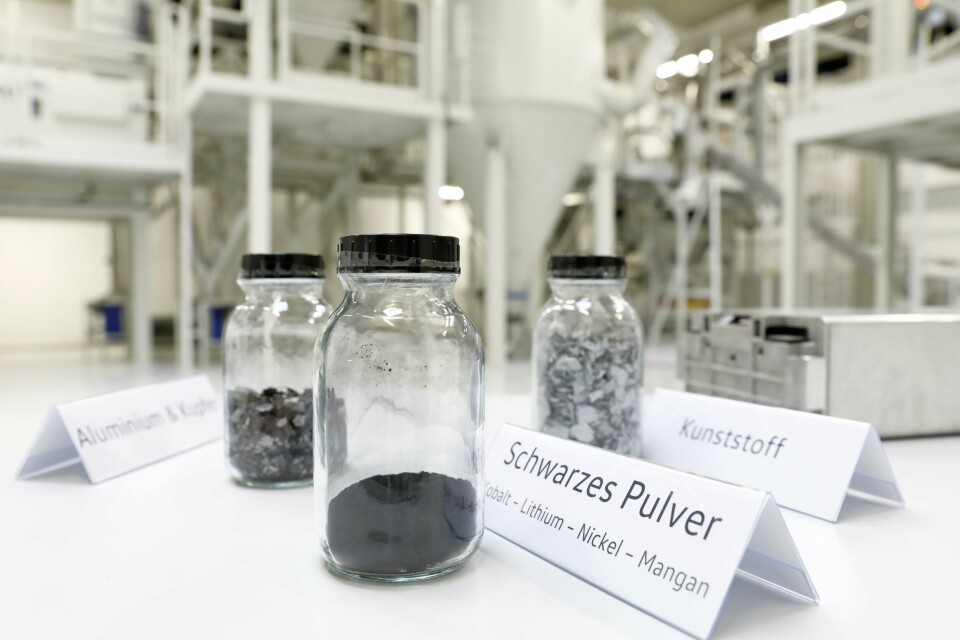Volkswagen-led research team to develop closed-loop battery recycling
Consortium launches closed-loop raw material project with the aim to develop permanent recovery of valuable materials to increase sustainability and security of supply
The HVBatCycle project will focus on the recovery of essential raw materials in a continuous, closed-loop process rather than a one-off operation. The goal will be to use fewer materials from primary sources such as mines or salt flats so the battery cells will be made from recycled materials that are recycled multiple times with no influence on the material quality. VW notes that creating this closed-loop process requires complex interdisciplinary processes. For efficient and ecologically and economically sensible recycling, all processes must be coordinated with each other to produce sorted and high-quality secondary materials under the highest safety requirements. This is about scalability and economic efficiency.

Sebastian Wolf, Chief Operating Officer Battery Cell at Volkswagen AG, explained: “The recycling of batteries and production rejects makes a decisive contribution to securing the supply of raw materials for our planned factories. Through the HVBatCycle project, a holistic view of the recycling processes and thereby the implementation of the closed loop of battery materials is being prepared.”
The mechanical-hydrometallurgical recycling process will be used as has by low energy requirements and offers a comparatively simple decentralised distribution of certain recycling processes in Europe, which is said to favour a local circular economy.
The development approach will follow an economically optimised discharge and mainly automated dismantling of declining battery systems down to cell or electrode level. This also includes an almost loss-free separation of active material and carrier foils as well as the recovery of graphite and highly volatile electrolyte components.
The subsequent hydrometallurgical processing of the ‘black mass’ focuses on early and selective extraction of the lithium in a soluble form as well as leaching, precipitation and refining of contained metals as a mixed hydroxide concentrate. Here, in connection with the renewed material synthesis of cathodic active material, it will be investigated whether the separation of metal compounds is necessary to produce new, fully high-performance cathode material.
The research work on the processing of the electrolyte and the graphite is intended to show, through the development of suitable processes, that important electrolyte components and the graphite can also be efficiently processed and used again in battery-suitable quality in cell production. All process steps are holistically accompanied by an ecological and economic life cycle analysis.
VW says it is very interested in the realisation of a closed loop of cell materials and has therefore taken on the coordination and management of the project. With the pilot plant for mechanical recycling at the Salzgitter components site, the Group’s Technology division ensures the production and supply of recyclable material from vehicle batteries. In addition, the cell manufacturing expertise of the Centre of Excellence in Salzgitter is used to produce new cells from fully recycled material.


